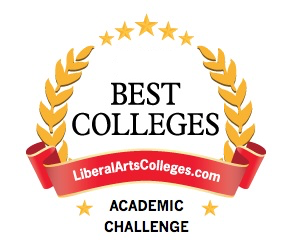
Photo: Grinnell College. Retrieved from: www.wikivoyage.org
Grinnell College is popular for academic performance as well as events related with social activism. This college has obtained its reputation as a school for innovators, free thinkers and social activists due to its history in community involvement. Before the Peace Corps was established, Grinnell has a system in place called Grinnell Corps to enable students and graduates to reach out to communities and make a difference in the quality of lives of many people all over the world.
Grinnell is consistently ranked in the top 20 for outstanding liberal arts colleges in the United States. Grinnell’s eclectic array of subjects and courses make for an open curriculum that encourages a student to take control of his courses and direction of study.
School History
In 1846, New England Congregationalists constructed the roster of Trustees of Iowa College in Davenport. A quarter of a century later, Iowa College was moved from Davenport to Grinnell, where the name change was done in honor of its benefactor Josiah Bushnell Grinnell. In 1909, the name Grinnell College became official.
The Civil War fleeced the population of the school, claiming most of the students and faculty. Throughout the decade after the war, rapid growth was resumed and the college started accepting women. New areas of academic study were also established, for instance the natural sciences. Grinnell is famous as the center of the Social Gospel reform movement, which was led by then professor George D. Herron and President George A. Gates. Grinnell was a pioneer of the women’s residence hall system, and it was also the first college to host intercollegiate football and baseball games west of the Mississippi.
Campus Life
Active learning is the highlight of student life in Grinnell, especially the one-on-one interactions with professors, which can be challenging. Some lecture classes are large, but on average, smaller class sizes are preferred. Fully tenured faculty members teach classes, laboratory work and other courses, which makes Grinnell different from other public and private universities where the administration lets graduate students take the place of a professor in teaching some classes.
Grinnell’s open curriculum gives students the chance to create their own future by choosing their courses of study. The only requirement for general education is to complete the First-Year Tutorial, which is a special topics seminar that teaches basic strategies such as critical analysis, writing and methods of inquiry. Faculty guidance is available for any student that is ready to start planning his or her open curriculum.
All full-time students of Grinnell College are required to live in campus for four years. The only exceptions are the students that are given permission to stay off campus during the last two years and those that study part time. Living in the college housing system makes a student more responsible because he or she can practice self-reliance and time management.
Grinnell allows students to participate in the selection and retention of faculty members, who are mostly holders of doctorate and terminal degrees in various fields of study. After each semester, students are asked to accomplish survey forms, and the results of the survey will play a big role in the merit-based salary grade and decisions regarding a faculty member’s tenure.
Financial Aid
Grinnell’s total costs for tuition and board amount to almost fifty thousand dollars. A significant percentage of Grinnell’s resources are spent for need-based and merit-based scholarships and grants, which students apply for. A financial aid package usually amounts to almost thirty thousand dollars.
The need-blind admission policy applies for domestic students but not for international applicants. Financial aid packages for international students are limited to fifty percent of the total tuition.
There are also special scholarships awarded to non-resident students from Africa, Eastern and Central Europe, Latin America, Middle East and Asia, Nepal, the People’s Republic of China. Students from these countries, as well as native Russian speakers, compete for these special scholarships.
Rankings
2017 College Rankings

